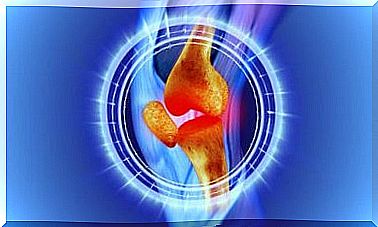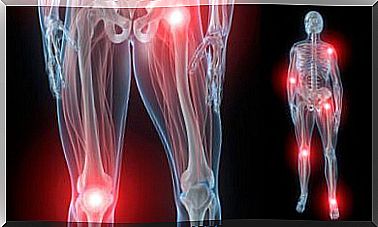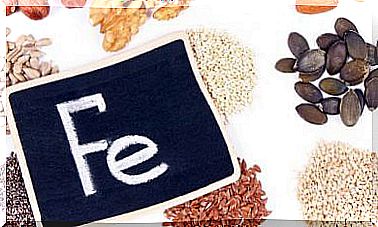Glucagon: What Is It And What Is It For?
The main factor in regulating the levels of glucagon in the blood is the level of glucose. When blood glucose is low, a direct signal is sent to alpha cells, which are the cells in the pancreas that synthesize this hormone.

Glucagon is a hormone that is naturally synthesized in the body, especially in an organ called the pancreas. The main function of this hormone is to increase blood sugar, unlike insulin.
Due to this property, as we will see later, glucagon is widely used in patients with hypoglycemia, that is, a drop in glucose level. Specifically, it is used in cases where the patient has lost consciousness and is not able to swallow food.
It is advisable for all people with diabetes to always carry a container of glucagon with them, especially those who are insulin-dependent. In addition, it is important that they teach a loved one how to administer it so that, if necessary, they can use it.
Function of glucagon in the body

Due to its mechanism of action, glucagon triggers a series of effects in different organs and processes in the body. Among its effects, we can mention the following:
- Metabolic : it is involved in metabolic reactions by inducing the catabolism of glycogen in the liver. In other words, it increases the breakdown of the glycogen molecule for the formation of glucose.
- Cardiac : Produces the well-known beta effect, i.e. positive inotropic and chronotropic effects similar to those of beta-adrenergic drugs. An inotropic substance is one that increases the contractile capacity of the muscle. Regarding the chronotropic effect, this is the ability of certain substances to affect the heart rate.
- Smooth muscle : Glucagon induces acute intestinal relaxation.
- Increases the concentration of catecholamines.
As we already know, it increases the release of insulin. This allows cells to incorporate the glucose transporter (GLUT4) and use the glucose formed during the process of hepatic gluconeogenesis, that is, the process of glucose synthesis.
Regulation of glucagon
The main factor in regulating the levels of glucagon in the blood is the level of glucose. When glucose is low in the blood, a direct signal is sent to alpha cells, which are the cells in the pancreas that synthesize this hormone. This action is blocked by the action of insulin. Therefore, glucose and insulin have opposite effects.
Amino acids also increase glucagon levels. However, this effect is less than that triggered by glucose. The fact that amino acids increase glucagon levels is important, because in this way hypoglycemia triggered by excessive protein intake can be avoided.
Other substances that stimulate the secretion of glucagon are :
- Catecholamines.
- Growth hormone.
- Glucocorticoids : they do this both directly and indirectly, because their action affects the increase of amino acids in the plasma.
In contrast, free fatty acids have the opposite action. In this sense, they have a certain inhibitory effect on the secretion of glucagon.
Learn more about hypoglycemia

Hypoglycemia, as we already know, is a disorder characterized by low levels of glucose or sugar in the blood. For many people with diabetes, that means having a level of 70 milligrams per deciliter or less. However, this value may vary, so you should check it with your doctor.
As for the symptoms of hypoglycemia, they tend to appear quite quickly and can vary from person to person. On the one hand, some people suffer from the same symptoms, but with different intensity, on the other hand, other people do not show symptoms.
Symptoms of mild to moderate hypoglycemia include the following:
- Pallor.
- Drowsiness.
- Tremors or nerves
- Excessive sweating
- Increased appetite
- Change in behavior or personality.
- Incoordination
On the other hand, when the hypoglycaemic setting is severe, the characteristic symptoms are as follows :
- Convulsion
- Loss of appetite.
- Loss of consciousness
Glucagon is a hormone produced in the pancreas, the main function of which is to increase the level of glucose in the blood. If you have diabetes, you should discuss with your doctor the possibility of always having a dose of this hormone with you in case of an emergency. You will also need someone to administer it to you.









